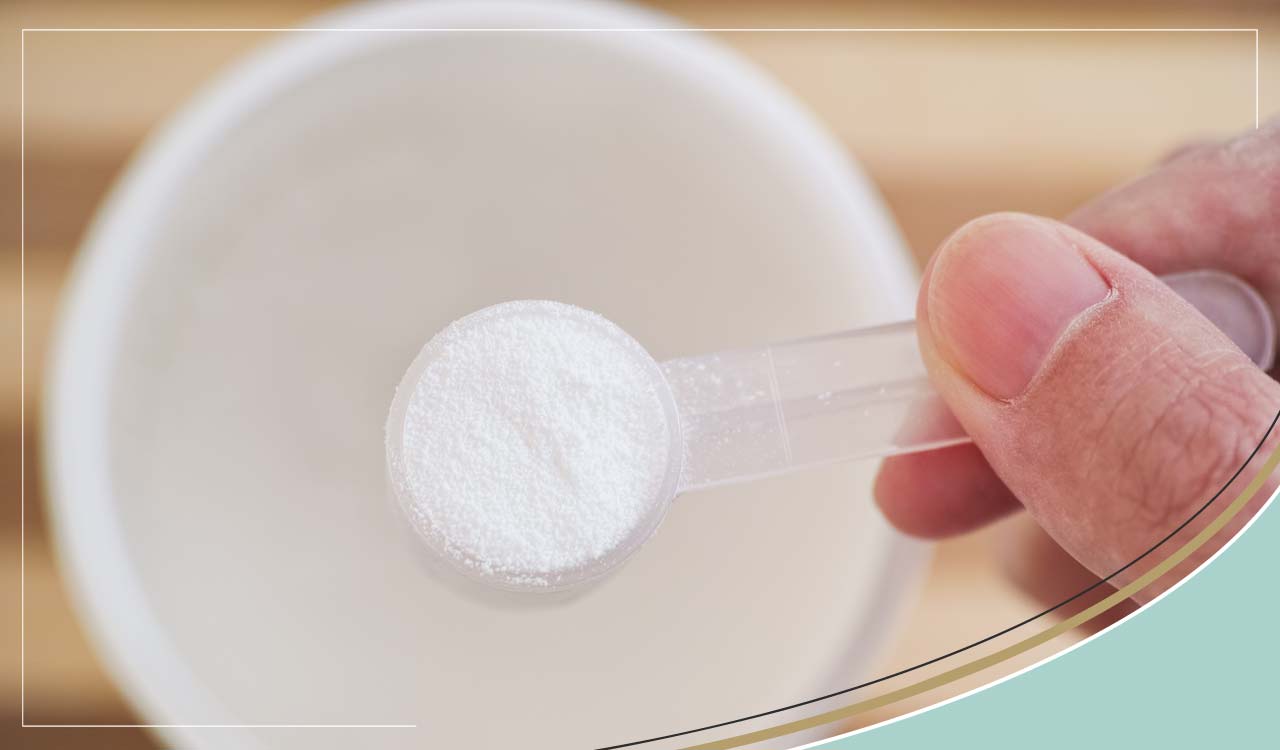What is D-ribose? Uses, Benefits, Studies and Side Effects

D-ribose in a naturally occurring sugar, present in all living cells and an essential part of the respiratory, skeletal, and nervous systems. It is a key component in many biological pathways including producing energy and a structural component of RNA and DNA. Ribose exists in two forms, L-ribose which is the synthetic unstable form, and D-ribose, used in supplement form to reduce fatigue and improve athletic performance.
D-ribose is naturally produced in the body from glucose metabolism, however in some individuals the sequence of chemical reactions by which it is formed can be impaired, leading to an increased requirement through the diet. Supplementation can also be useful during times of high energy exertion such as exercise or illness as D-ribose is best known for its role in ATP production, the main storage and transportation unit of energy for muscle contraction and nerve impulse propagation (the messages sent to the brain).
D-ribose is a pentose sugar, which means it contains five carbon atoms. Unlike glucose, D-ribose does not serve as a primary energy source obtained through our diet. Instead, it is synthesized by our bodies and plays a pivotal role in the synthesis of adenosine triphosphate (ATP), the cellular "energy currency." ATP molecules store and transfer energy within cells, supporting everything from muscle contraction to nerve impulse propagation.
ATP – Adenosine Triphosphate Production
D-ribose is key for adenosine triphosphate (ATP) production, the main energy source of every cell in the body. Within each cell of the body, mitochondria exist to generate this energy from sugar molecules. When mitochondria functions well, the body produces a steady supply of energy to power our everyday needs, for example brain function and muscle activity. However, in cases where energy requirements are excessively high, for example illness, intense exercise, or due to genetic factors, there may be insufficient ATP production. D-ribose is essential to produce ATP, and supplementation has shown to enhance the energy output of our cells. D-ribose also contributes to energy by acting as a key component of acetyl coenzyme A involved in protein, carbohydrate and lipid metabolism as well as playing a role in energy production.
D-Ribose in Clinical Studies: Unveiling the Evidence
D-Ribose, a naturally occurring sugar vital for energy production, has been the subject of numerous clinical studies aimed at understanding its potential health benefits and therapeutic applications.
Fibromyalgia and Chronic Fatigue Syndrome
Fibromyalgia and Chronic Fatigue Syndrome (CFS) are characterized by persistent fatigue, muscle pain, and a range of other debilitating symptoms. Multiple studies listed below have investigated the effects of D-Ribose on patients with these conditions [1] [2]. The results were promising, with a significant reduction in symptoms reported by participants. The study concluded that D-Ribose supplementation could lead to improvements in energy, sleep, mental clarity, pain intensity, and well-being in individuals with fibromyalgia and CFS.
Athletic Performance and Recovery
The potential benefits of D-Ribose for athletes and physically active individuals have also been explored. Research focusing on exercise recovery has shown that D-Ribose supplementation can facilitate quicker restoration of ATP levels after high-intensity exercise, potentially reducing recovery time and enhancing subsequent performance. A specific study - The influence of D-ribose ingestion and fitness level on performance and recovery [3] - involving endurance athletes found that those who supplemented with D-Ribose maintained higher power output and experienced less decline in performance over a series of high-intensity sessions compared to a placebo group.
Cardiology
One study targeting congestive heart failure patients observed that D-Ribose supplementation improved symptoms, exercise tolerance, and quality of life. These findings point to D-Ribose's potential in managing heart diseases by supporting cellular energy metabolism in the heart [4].
A recent study CoQ10 and D-ribose in Patients with Diastolic Heart Failure [5] by the University of Kansas Medical Center whilst hampered by the pandemic showed positive results for the D-ribose group in several performance tests. More studies are needed to establish safety of D-ribose supplementation for those with existing heart conditions.
Before using a D-ribose supplement always speak to a medical professional.
Dosing and Safety
D-ribose has been used to supplement individuals' diets both orally and intravenously, but it is generally available in a dry powder form. The recommended dose ranges from 5-15 grams per day and mixed into water and offering a pleasant, sweet taste.
There are very few reported side effects, with some reports of mild diarrhoea, nausea and gastrointestinal discomfort which may be reduced by consuming large amounts of the supplement with or shortly after food.
Despite being a sugar by structure, D-ribose does not impact blood-glucose levels in the same way glucose, fructose or sucrose do. However, research suggests D-ribose may increase insulin secretion which lowers blood glucose levels, therefore it is not advised for those with diabetes (type one or two) or hypoglycaemia. Due to this impact on blood glucose levels, it is also not advised for those about to undergo surgery or during pregnancy and breastfeeding.
Potential Side Effects
While D-Ribose is generally considered safe for most people, especially when produced naturally by the body, supplementation can have side effects, particularly when taken in large doses. Potential side effects include:
- Digestive Issues: High doses of D-Ribose can lead to gastrointestinal symptoms such as nausea, diarrhoea, and stomach discomfort.
- Blood Sugar Impact: There is some concern that D-Ribose supplements could affect blood sugar levels, although this effect may be more relevant for individuals with diabetes or blood sugar management issues.
- As with many supplements, the long-term effects of D-Ribose supplementation are not well-studied, and caution is advised.
Future Directions
D-Ribose plays a foundational role in our cellular energy systems, and its supplemental use offers intriguing possibilities for enhancing physical performance, managing certain health conditions, and supporting cardiovascular health. However, as with any supplement, it is important to approach D-Ribose with an understanding of both its potential benefits and its limitations.
Consultation with a healthcare provider is essential before beginning any new supplementation, especially for individuals with pre-existing health conditions or those taking other medications. As research continues to unfold, the story of D-Ribose may reveal even more about the complexities of our body's energy dynamics and how we can support them for optimal health.
[1] The use of D-ribose in chronic fatigue syndrome and fibromyalgia: a pilot study https://pubmed.ncbi.nlm.nih.gov/17109576/
[2] Treatment of Chronic Fatigue Syndrome and Fibromyalgia with D-Ribose– An Open-label, Multicenter Study https://openpainjournal.com/contents/volumes/V5/TOPAINJ-5-32/TOPAINJ-5-32.pdf [PDF]
3] The influence of D-ribose ingestion and fitness level on performance and recovery https://jissn.biomedcentral.com/articles/10.1186/s12970-017-0205-8
[4] Reducing Symptom Burden Using Ubiquinol And/Or D-Ribose in Patients with Heart Failure With Preserved Ejection Fraction https://www.ncbi.nlm.nih.gov/pmc/articles/PMC7251495/
[5] CoQ10 and D-ribose in Patients with Diastolic Heart Failure https://classic.clinicaltrials.gov/ct2/show/NCT03133793
 Free Royal Mail 24 Tracked Delivery - Spend £10+
Free Royal Mail 24 Tracked Delivery - Spend £10+
 Support 01904 789559 - 20+ Years Expertise
Support 01904 789559 - 20+ Years Expertise
 Rated 4.9 out of 5 on Trustpilot
Rated 4.9 out of 5 on Trustpilot









